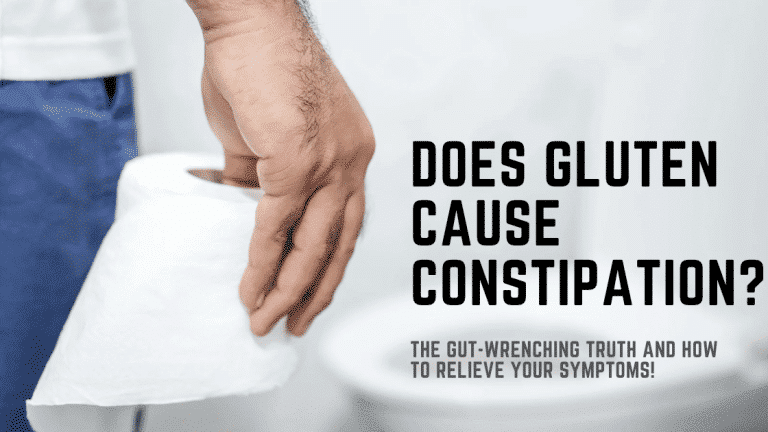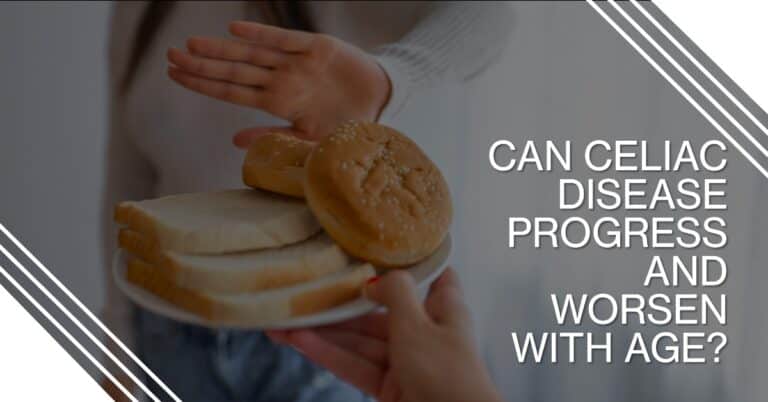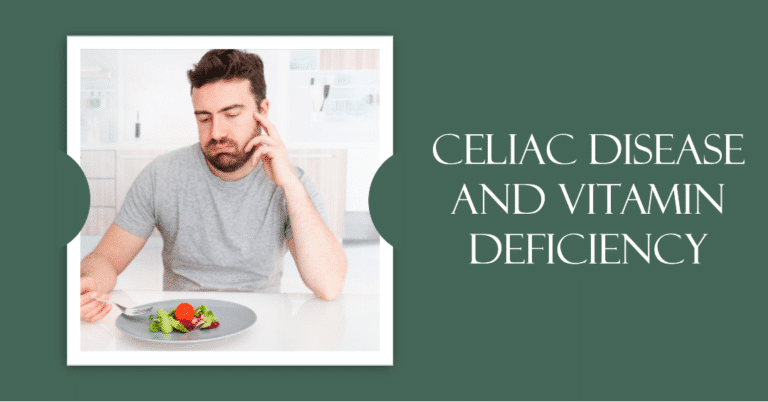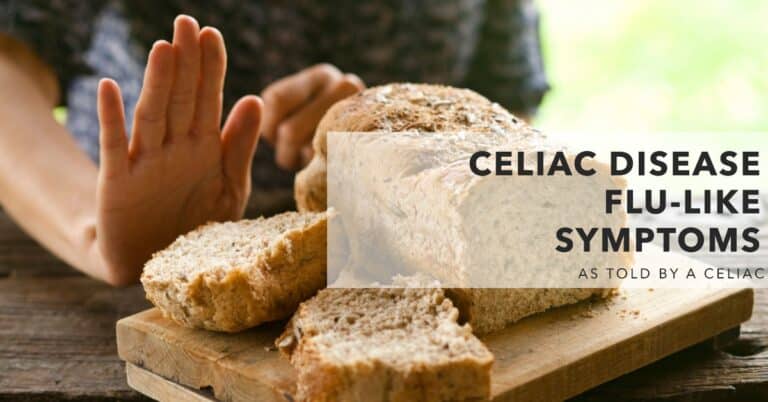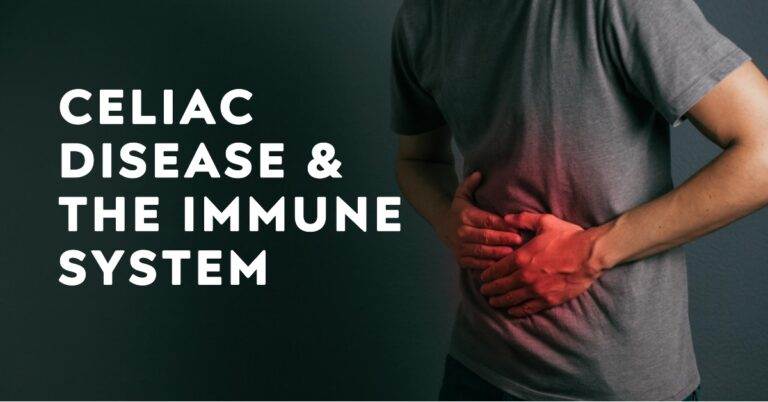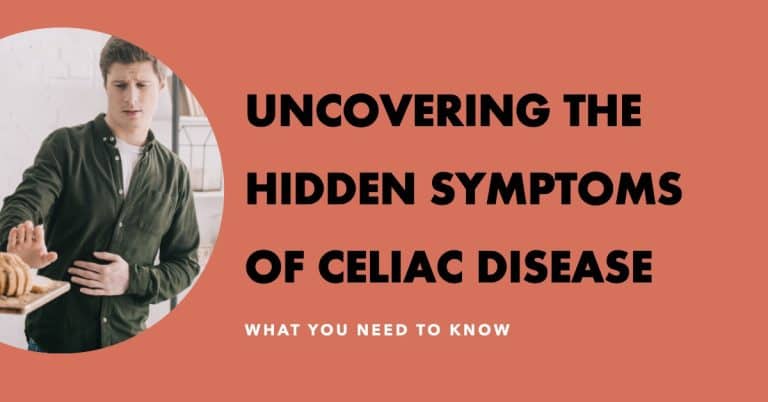Celiac Disease and IBS: Navigating the Life-Changing Maze of Gut Troubles

If you’ve been diagnosed with both celiac disease and IBS like I did in 2021, you’ll be juggling two difficult-to-manage chronic gastrointestinal conditions.
And believe me – achieving a balance in symptom management is no walk in the park!
From countless daily bathroom trips to doing all I can to avoid cross-contamination – the struggle is real.
But hey, it’s not all doom and gloom – dive in to find out more on balancing these tricky tightropes of the gut.
IBS And Celiac Disease: Key Takeaways
- Celiac disease is an autoimmune disorder affecting the small intestine, while IBS mainly targets the large intestine.
- Overlapping symptoms between the two can confuse diagnosis.
- A gluten-free diet is crucial for managing celiac but may or may not alleviate IBS symptoms.
- Understanding triggers is key for both conditions.
- Proper diagnosis is essential; don’t self-diagnose.
Let’s Tear the Band-Aid Off: What Are These Conditions?
We all know that celiac disease is an autoimmune condition that turns your body into a battleground when you ingest gluten.
It affects the small intestine and makes it an inhospitable place for absorbing nutrients.
On the other hand, irritable bowel syndrome (IBS) plays a different ball game, primarily messing with the large intestine. Here, you’re looking at diarrhea, constipation, or sometimes a swing between both.
The problem is, the symptoms of celiac disease and irritable bowel syndrome can seem like two peas in a pod, often leading to a misdiagnosis.
Picture this: you’re originally diagnosed with IBS and then—bam!—you find out you’ve got celiac too. It’s no fun, believe me.
It’s important to know that the celiac disease can damage the small intestine. You need to be as cautious as James Bond diffusing a bomb when it comes to gluten.
Bread, pasta, barley—it’s a no-go area! And, if you’re still experiencing symptoms on a gluten free diet, IBS could be the other suspect in the lineup.
Triggers and Treatments: Not One-Size-Fits-All
With celiac disease, the villain is gluten. A piece of cake or a pint of beer can trigger symptoms faster than you can say “bellyache.”
If you’re struggling to get the gluten-free lifestyle right, check out this comprehensive guide on the dangers of a gluten-free diet if not celiac.
IBS, however, is trickier. Foods, stress, hormonal changes—these can all act as triggers. Now, you’re thinking, “Could it be the onions, the dairy, or just Monday morning blues?”
A low FODMAP diet may help you pin down these irksome triggers – so it may be worth exploring with the guidance of a qualified dietician.
IBS vs Celiac Disease: Tests, Tests, and More Tests!
For celiac disease, a blood test followed by an endoscopy can pretty much confirm the diagnosis. When it comes to IBS, it’s murkier waters.
There’s no definitive test for IBS, but meeting the diagnostic criteria for IBS involves changes in bowel habits, abdominal pain, and a lack of red flags like blood in the stool.
If you were originally diagnosed with IBS and later discover you also have celiac disease, don’t lose heart. You’re not alone, and getting a precise diagnosis is the first step to managing your symptoms effectively.
You may need to explore refractory celiac disease for a more tailored treatment plan.
My Personal Experience Getting Diagnosed With Celiac Disease and IBS
My gut and I have been on a rollercoaster since late 2019. I began noticing shifts in bowel habits and discomfort.
Then came 2020, and the pandemic put everything on hold—making me suffer in silence. Two failed diagnostic attempts left me in limbo; was it celiac or IBS?
Individuals with celiac disease may share many of the same symptoms with IBS, making it a confusing maze. In my case, the symptoms were all over the place.
I tried a low FODMAP diet and even changed to gluten-free foods. But my digestive symptoms persisted. The crux of the matter: getting an accurate diagnosis.
Getting The Answers I Desperately Needed
After two ‘maybes’, I scored a win on my third try. A cocktail of tests showed I had celiac disease, an autoimmune disorder that affects nutrient absorption, and IBS, a digestive condition.
Finally, I could target my ongoing symptoms with an effective treatment plan.
Navigating the similarities and differences in symptoms felt like a full-time job. But that third round of tests was my game-changer.
It’s vital to remember that celiac disease affects your entire gastrointestinal tract differently than IBS.
Don’t ignore your gut; if you hope to achieve an accurate diagnosis and an effective treatment, a doctor’s visit is non-negotiable.
Battling Celiac Disease And Irritable Bowel Syndrome: Why You Need Two Different Diets
Experiencing celiac disease symptoms along with IBS? – You can’t just waltz into a health food store and grab the first gluten-free item you see.
That’s like putting duct tape on a leaking pipe and hoping it holds!
Gluten-Free Isn’t Always IBS-Friendly
Yep, you heard that right. Although a gluten-free diet is a lifesaver for people with celiac disease, it may not always alleviate symptoms of IBS.
Foods like broccoli and apples are gluten-free, but they’re also high in FODMAPs, compounds that can stir the pot for your irritable bowel syndrome.
If you’re having abdominal pain, bloat, or changes in bowel habits, you might need to go low FODMAP.
Low FODMAP Diet: The IBS Silver Bullet?
The low FODMAP diet is hot in the IBS circle for a reason. In fact, FODMAPs are notorious for triggering symptoms like constipation or diarrhea.
The low FODMAP diet limits foods high in these compounds, offering relief from persistent IBS symptoms.
It’s important to know that gluten-containing foods like wheat, rye, and barley are also high in FODMAPs. So going low FODMAP might kill two birds with one stone.
It’s Not Just About Food, Okay?
Mind the Gap: Stress & Lifestyle
Can we talk about stress for a second? How many of us were originally diagnosed with IBS and then found out we also have celiac disease?
Stress and lifestyle changes can aggravate both conditions. No kidding, stress can make celiac disease worse.
And let’s not forget how stress is a significant trigger for IBS symptoms. So chill out, follow some gut-directed hypnotherapy with Nerva, or take that bubble bath you’ve postponed for a month.
And if you’re struggling with nutrient deficiencies or need an extra helping hand in managing your symptoms, be sure to check out my guides on the best IBS supplements and the best multivitamin for celiac disease.
Exercise & Probiotics
Light exercise may help alleviate symptoms of both disorders, but remember to talk with your doctor before starting any fitness routine.
Probiotics are also gaining momentum in the world of gut health. Though not a one-size-fits-all solution, they may benefit individuals with gastrointestinal symptoms from both celiac and IBS.
Phew, a lot to digest—no pun intended. You might not solve the celiac and IBS puzzle overnight, but each clue gets you closer to a happier gut.
Lifestyle Choices: Beyond Diagnosis and Despair
IBS? Celiac disease? Time to pivot from doom and gloom to action.
Let’s talk choices, differences between the two, and how to rock your life while dealing with similar symptoms of each condition simultaneously.
Low FODMAP and Gluten-Free: Allies or Foes?
Bloat, diarrhea, cramp, stomach pain—welcome to the club. No one wants these tag-alongs. A low FODMAP diet often kicks IBS symptoms to the curb.
What’s that, you ask? FODMAPs are carbs that ferment in your gut and can cause an uproar.
A gluten-free diet is the law for celiac disease, and may help those who also have IBS. Got it?
- Gluten-Free: No wheat, no barley, no rye.
- Low FODMAP: Bye-bye onions, garlic, and high-fructose fruits.
Work, Life, and Everything in Between
Managing intestinal chaos goes beyond what’s on your plate. Stress, lifestyle, and even your job can aggravate your gut symptoms.
Whether you’ve been diagnosed with celiac disease or IBS, some workplace tweaks could do wonders.
Take a breather and check out my article on jobs for IBS sufferers.
Celiac Disease and IBS – Final Thoughts
Navigating the maze of celiac disease and IBS symptoms can feel like you’re stuck in an endless loop of stomach pain.
So, what’s the deal? Is it celiac disease or IBS causing the chaos? The symptoms may overlap, but the conditions are distinct. If munching on gluten-free foods isn’t giving you relief, let’s cut to the chase: talk to your doctor.
They’ll be your guide in the celiac vs IBS showdown, helping you tell the difference between the two and guiding you toward an accurate diagnosis for effective treatment.
So, don’t play the guessing game; seeking professional advice from your doctor and a qualified dietician is your best bet.
Disclaimer: This content is based on my personal experience as an individual diagnosed with celiac disease and IBS (Irritable Bowel Syndrome) who follows a strict gluten-free diet. This does not constitute medical advice. Please consult a medical professional, nutritionist, or qualified dietitian for personalized, professional advice.

